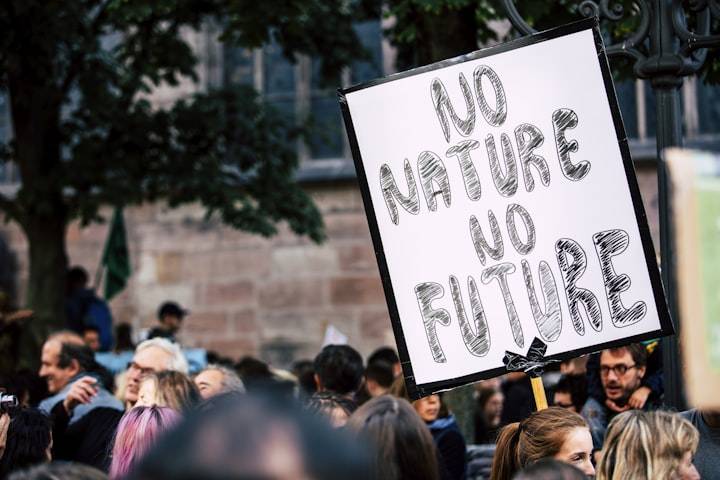In the vast canvas of our planet's ecosystems, there exists an intricate tapestry of life. From the majestic forests of the Amazon to the coral reefs of the Great Barrier Reef, Earth's biodiversity is a testament to the wonders of evolution and the beauty of nature. Yet, this tapestry is unravelling at an alarming rate, with global warming serving as the chief culprit behind the tragic loss of biodiversity.
Imagine a world where the vibrant hues of tropical rainforests are replaced by silent, barren landscapes. Picture a sea devoid of the kaleidoscopic brilliance of coral reefs, now bleached and lifeless. This grim reality is not a distant dystopian future; it is the present state of our planet, where the effects of climate change are ravaging ecosystems and driving countless species to the brink of extinction.
One of the most iconic victims of biodiversity loss is the polar bear. These magnificent creatures, adapted to life on the Arctic ice, now face a dire threat to their existence as melting ice caps shrink their habitat. With dwindling hunting grounds and diminishing prey, polar bears are forced to travel longer distances in search of food, leading to starvation and declining populations. The image of a solitary polar bear, stranded on a shrinking ice floe, epitomizes the profound tragedy of biodiversity loss in a warming world.
But it's not just polar bears that are suffering. Across the globe, countless species are facing similar struggles as their habitats vanish and climates become inhospitable. From the elusive Amur leopard to the majestic African elephant, from the delicate monarch butterfly to the elusive snow leopard, no corner of the Earth is immune to the relentless march of climate change.
For indigenous communities whose cultures and livelihoods are intricately intertwined with the natural world, the loss of biodiversity is a deeply personal tragedy. For centuries, indigenous peoples have lived in harmony with their surroundings, relying on the land for sustenance, medicine, and spiritual fulfilment. But as ecosystems degrade and species disappear, indigenous communities are witnessing the erosion of their traditional way of life, leaving them with a profound sense of loss and grief.
In the Amazon rainforest, home to an unparalleled diversity of life, indigenous tribes are on the front lines of the battle against deforestation and climate change. As loggers and ranchers encroach upon their ancestral lands, indigenous peoples are fighting to protect not only their homes but also the rich biodiversity that sustains them. The loss of the Amazon's biodiversity not only threatens countless species but also jeopardizes the invaluable ecological services provided by the rainforest, from regulating the global climate to purifying the air we breathe.
The emotional toll of biodiversity loss extends far beyond the natural world; it reverberates through every aspect of human society. As ecosystems unravel and species disappear, we are robbed of the wonders of nature and the potential for future discoveries. The extinction of a single species represents the loss of millions of years of evolution, erasing a unique genetic legacy from the fabric of life.
But amidst the despair, there is still hope. Across the globe, individuals, communities, and governments are coming together to fight for the preservation of biodiversity and the protection of our planet's precious ecosystems. From grassroots conservation efforts to international agreements like the Paris Agreement, there is a growing recognition of the urgent need to address climate change and its devastating impacts on biodiversity.
As we confront the challenges of a warming world, we must remember that the loss of biodiversity is not just an environmental issue; it is a moral imperative. We owe it to future generations to protect the rich tapestry of life that sustains us all, to safeguard the wonders of nature for posterity, and to ensure that our planet remains a vibrant and thriving home for all living beings.
In the face of adversity, let us draw inspiration from the resilience of the natural world and the indomitable spirit of those who fight to protect it. Let us stand together as stewards of the Earth, united in our commitment to preserving biodiversity and building a sustainable future for generations to come. Only by working together can we hope to reverse the tide of biodiversity loss and ensure that our planet remains a beacon of life and beauty in the vast expanse of the cosmos.



No comments yet
Be the first to share your thoughts!